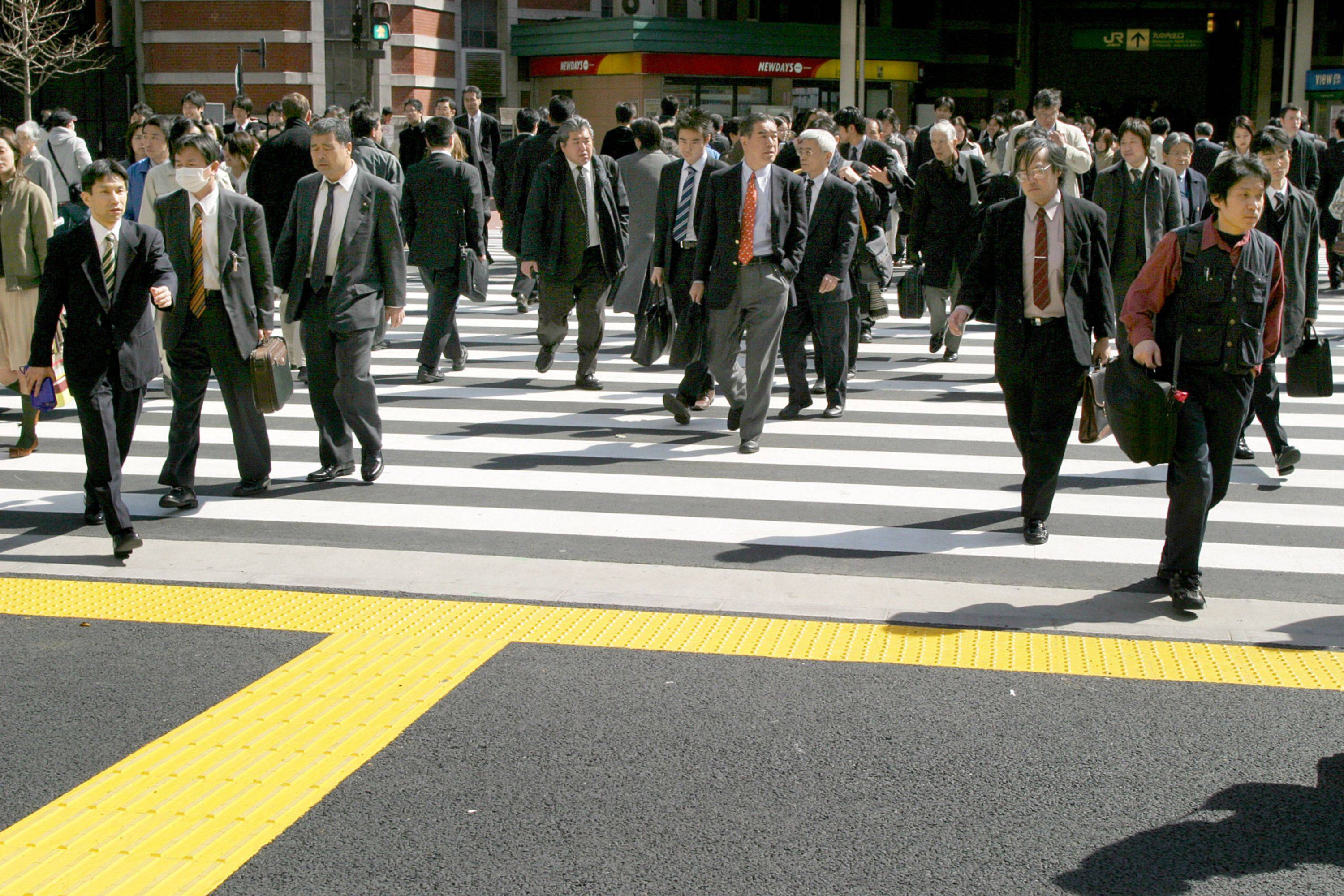The slogan used by the Japan Council of Metalworkers’ Unions sums it up: "Secure Jobs for a Secure Future.”
Throughout the country, talk and headlines hint at a seminal moment that will alter the economy’s course, with the spring shunto wage negotiations delivering the best results in three decades. International investors are watching closely to gauge whether they will convince the Bank of Japan that salaries are rising along with prices and so alter its long-standing easy-money policy.
But as the metalworkers’ union slogan shows, labor values security far more than higher salaries. That’s why, for all the hype, the shunto talks will likely be a repeat of those in the early Abenomics years — a welcome one-off pay rise that has little broader impact on the long-term wage trend. Measured in dollar terms, workers on average still make the lowest in the Group of Seven nations, having stalled in real terms for three decades. That’s making Japan a less attractive destination for the skilled overseas staff it needs to attract into key sectors such as nursing care as the nation ages. The weak yen isn’t helping, while inflation is causing real wages to drop the most in nearly 10 years.

















With your current subscription plan you can comment on stories. However, before writing your first comment, please create a display name in the Profile section of your subscriber account page.